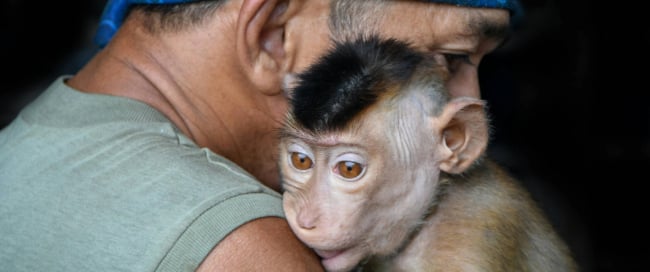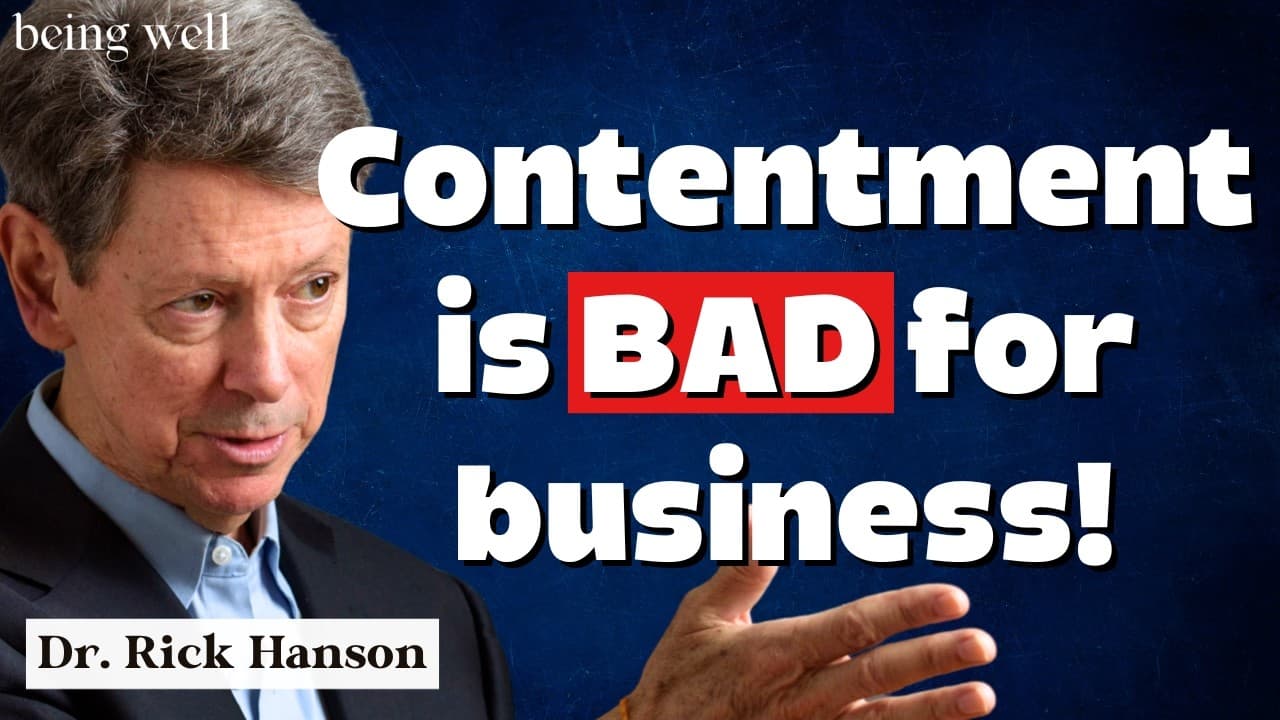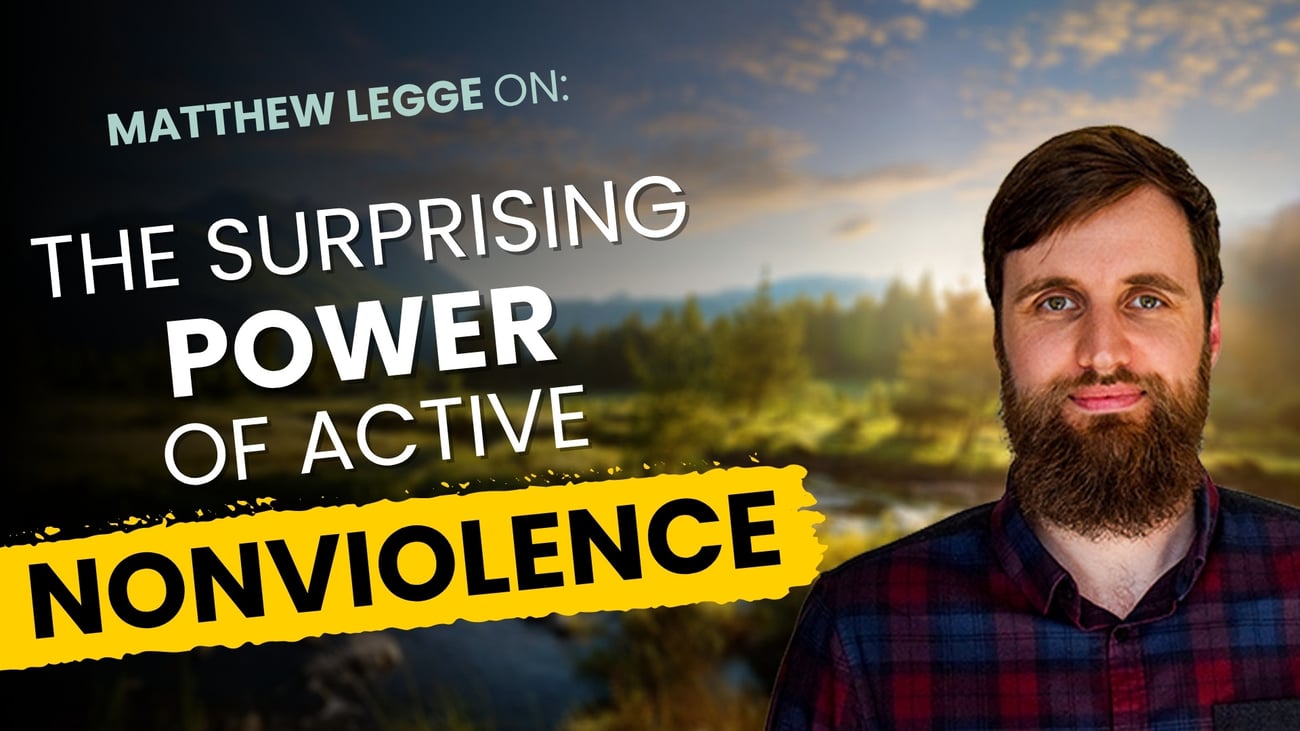 |
Just One Thing |
|
|
|
Simple Practices for Resilience and Happiness from |
|
DR. RICK HANSON |
 |
|
|
|
|
I'm proud to be a part of the Global Compassion Coalition's FREE Intergenerational Healing Summit, happening July 28th - August 1st.
Across generations, patterns of pain, disconnection, and unhealed trauma can be unknowingly passed down. But so can strength, wisdom, and compassion.
This summit is your invitation to break the cycle — and create a more connected, compassionate legacy for yourself and those who follow. |
|
|
|
 |
What helps you carry your load? |
THE PRACTICE: |
Hug the Monkey. |
|
|
— Why? — |
|
To simplify a complex process spanning 600 million years, your brain developed in ways that are loosely related to three major stages of vertebrate evolution:
- Reptile – Brainstem, focused on avoiding harms
- Mammal – Subcortex, focused on approaching rewards
- Primate/human – Neocortex, focused on attaching to “us”
Since the brain is integrated, avoiding, approaching, and attaching are accomplished by its parts working together. Nonetheless, each of these functions is particularly served and shaped by the region of the brain that first evolved to handle it.
The first JOT in this series – pet the lizard – was about how to soothe the most ancient structures of the brain, the ones that manage the first emotion of all: fear. The next one – feed the mouse – addressed how to help early mammalian neural systems feel rewarded and fulfilled. This JOT is about developing a strong sense of being included and loved.
In ancient times, membership in a band was critical to survival: exile was a death sentence in the Serengeti. Today, feeling understood, valued, and cherished may not be a life and death matter (though studies do show that survival rates for cancer and other major illnesses are improved with social support), but it certainly affects one’s happiness and effectiveness.
Unfortunately, many of us have encountered significant shortfalls of incoming empathy, recognition, and nurturance – or experienced wounds of abandonment, rejection, abuse, dismissal, or shaming.
Therefore, both to satisfy an innate human need for connection and to remedy old pain, it’s important to “hug the monkey” (an admittedly goofy phrase) inside yourself and thus absorb in one form or another that most fundamental human sustenance: love. |
— How? — |
|
Try to routinely get a basic sense of feeling cared about. Check out this JOT for how to do this. Basically, imagine being in the presence of someone you know wishes you well; it could be a human, pet, or spiritual being, and in your life today or from your past; the relationship doesn't need to be perfect as long as you matter to this person in some way, such as liking, appreciating, or loving you. Then, based on the fact that this person does care about you, open to feeling cared about in your body, heart, and mind. Savor this experience and really take it in. Help it sink down into you, all the way down into young, tender layers of your psyche . . . and really far down into those ancient primate parts in you and everyone else that desperately need to feel bonded with others, included in the band, recognized, and valued.
Next, get a sense of your own caring nature. Think of someone you naturally care for and explore what caring feels like in your body, emotions, thoughts, and inclinations toward action. In the same way, explore related experiences, such as being warm, friendly, affectionate, nurturing, encouraging, protective, acknowledging, or loving. Here too, really know and take in the sense of what it is like for you to “hug the monkey” in other people.
Now imagine a “caring committee” inside yourself that is involved with caring both for others – and for yourself. My own committee includes the plump fairy godmother in Sleeping Beauty, an internalized sense of my parents and others who’ve loved me, spiritual teachers, Gandalf, and tough-but-kind coaches on my journey through life.
Who (or what?!) is on your own committee? And how powerful is this committee in terms of caring for you compared to other forces inside your own mind? Since the brain is a giant network with many nodes, the psyche has many parts. These parts often coalesce into three well-known clusters: inner child, critical parent, nurturing parent. (Another way of describing these three clusters is: vulnerable self, attacker, protector.)
In most people, the inner nurturer-protector-encourager is much weaker than the inner critic-pusher-attacker. So we need to build up the caring committee by frequently taking in experiences of feeling cared about – and then to call on and listen to this committee!
So – get a sense of parts within you that want to feel seen, included, appreciated, wanted, respected, liked, cherished, and loved. Everyone has these parts. They often feel young, soft, or vulnerable. As you are open to hearing from them, notice any dismissal of them, or minimizing of their needs, or even disdain or shaming. Ask your caring committee to stick up for these parts, and to tell them their longings are normal and healthy.
Imagine your caring committee soothing very young parts of yourself . . . praising and delighting in older parts of you . . . offering perspective and wisdom about tough experiences you’ve had . . . reminding you of your truly good qualities . . . pulling for the expression of the best in you . . . hugging you, hugging those soft longing parts inside you, giving them what they need . . . and feeling down to the soft furry little sweet monkey inside you and every human being, holding and loving and hugging it.
And meanwhile, your young, yearning, vulnerable, or bruised parts can feel that they are receiving what they’ve always needed, what everyone needs: recognition, inclusion, respect, and love. |
| Read this Online |
|
|
Know someone who could feel more loved and included?
|
|
Share this Just One Thing practice with them! |
|
Share on Facebook | Tweet on X | Forward this Email
|
|
|
|
|
|
|
NEW ON THE BEING WELL PODCAST |
Is Self-Help Making You Miserable?
|
 |
|
Dr. Rick and Forrest explore what’s really wrong with the self-help industry, going beyond the obvious pseudoscience and snake oil to examine deeper structural issues. They discuss how the industry’s focus on individual responsibility reinforces shame and ignores context, the risks of turning healing into a never-ending project, performative personal growth, narcissism, the role of social media and capitalism in shaping self-help content, the blurred line between honest striving and hustle culture, and their personal experiences navigating their own relationship to the industry. Throughout, they emphasize finding the middle path: balancing agency with awareness, growth with acceptance, and sincerity with skepticism.
|
| Check out the Episode |
|
|
|
|
|
|
NEW FROM THE WEDNESDAY MEDITATIONS + TALKS |
The Surprising Power of Active Nonviolence |
 |
|
Last week, guest teacher Matthew Legge offered a live meditation on Presence without Straining, followed by a talk on The Surprising Power of Active Nonviolence, and I hope you'll check it out.
If you haven't yet, sign up to join me every week for this free, live offering.
|
| Check It Out |
|
|
|
|
|
|
MORE GOOD STUFF |
|
|
|
SCIENCE NEWS (VIEW ARCHIVE HERE)
Scientists have discovered two genes in zebrafish that specifically direct the regrowth of hearing sensory cells - something humans can't do - offering new hope that targeting similar pathways might one day treat or even reverse human hearing loss.
|
|
|
|
FOR PARENTS
Nurturing yourself is what enables you to be at your best for your children. Further, parenting is not a hobby you picked up for fun. You work hard for the sake of your children and family, and that entitles you to respect, care – and stress relief. Here are 10 key ways a parent can lower their stress level and start feeling immediately better.
|
|
|
|
|
|
|
|
|
HAVE YOU READ IT YET? |
Hardwiring Happiness |
 |
|
Beat the brain’s negativity bias with the power of positive neuroplasticity for lasting contentment, calm, and confidence. This New York Times bestseller is available in Hardcover, Paperback eBook, and Audiobook, wherever books are sold.
|
| Get Your Copy |
|
|
|
|
|
|
WORDS OF WISDOM |
"To satisfy an innate human need for connection and to remedy old pain, it’s important to “hug the monkey” inside yourself and thus absorb in one form or another that most fundamental human sustenance: love."
|
|
— RICK HANSON, PHD |
|
|
|
|
JUST ONE THING (JOT) is the free newsletter that suggests a simple practice each week for more joy, more fulfilling relationships, and more peace of mind. A small thing repeated routinely adds up over time to produce big results.
Just one thing that could change your life.
(© Rick Hanson, 2024) |
|
|
|
|
|
|
|
|